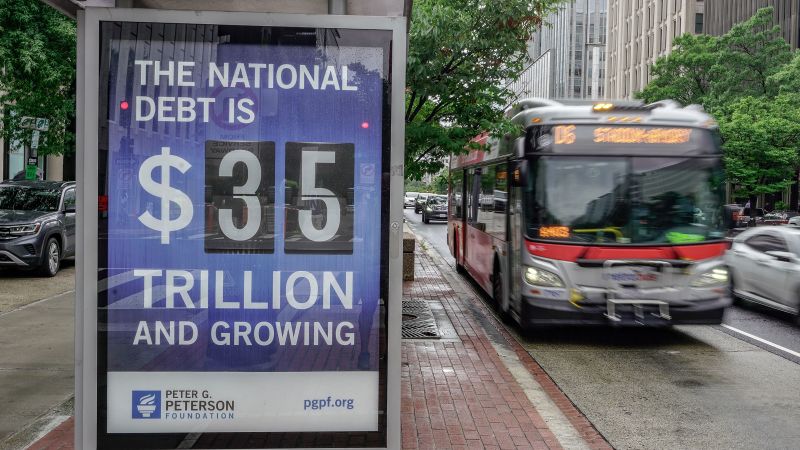The analysis of the campaign promises by Vice President Kamala Harris and former President Donald Trump reveals significant increases in the national debt with their proposed policies. Harris’ plan is estimated to increase the debt by $3.5 trillion over the next decade, while Trump’s platform could cause it to spike by $7.5 trillion. These estimates are based on various assumptions and sources since neither candidate has issued detailed proposals. Additionally, the impact of these policies on Americans and companies, as well as the need for congressional approval, adds to the uncertainty.
Both candidates’ proposals lack a focus on reducing the nation’s substantial debt load, which currently stands at $35.7 trillion. Despite repeated calls from both congressional Republicans and Democrats to address the debt, the federal government continues to spend more than it collects in revenue, leading to a swift increase in debt. Experts warn that the nation is on an unsustainable fiscal path, with interest payments already exceeding spending on Medicare and defense, crowding out investment opportunities and other priorities.
Harris’ platform includes measures to extend certain provisions of the 2017 Tax Cuts and Jobs Act for those making less than $400,000, expand tax credits, and enhance Affordable Care Act premium subsidies. These proposals, along with support for affordable housing, manufacturers, small businesses, border security, and education, would cost $2.3 trillion in total. She plans to offset some of these costs by raising the corporate tax rate, capital gains rates, and other taxes on wealthier Americans and large corporations, but it is unlikely to cover the full expenses.
Trump’s proposals aim to extend most provisions of the 2017 tax cuts law, eliminate the cap on state and local tax deductions, and reduce taxes for domestic manufacturers. Additionally, he plans to bolster the military, secure the border, and provide more support for health care, long-term care, and caregiving. However, these measures, along with his proposed tariffs on foreign imports, which are expected to bring in $2 trillion to $4.3 trillion over a decade, do not fully fund his agenda. Tariffs could lead to higher prices for imported goods and potentially trigger retaliatory measures from other countries.
In conclusion, both Harris and Trump are putting forth ambitious proposals that come with substantial costs and could significantly add to the national debt. With the lack of detailed plans and uncertainty surrounding the potential impact of these policies, the country’s fiscal situation remains a concern. As the candidates continue to expand on their promises to voters, the need for a comprehensive and sustainable approach to addressing the growing national debt becomes increasingly important. The choices made in the upcoming election will have significant implications for the country’s economic future and its ability to manage its financial obligations effectively.


